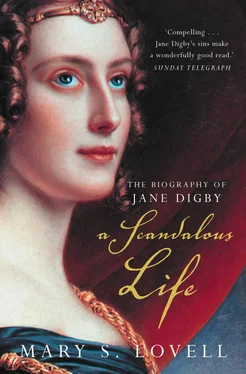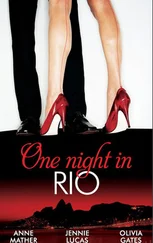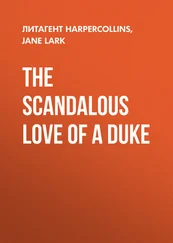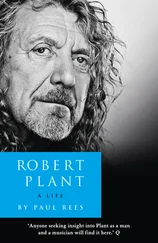Her memory failed her only when it came to the conversation she had had with Lord Ellenborough a year earlier on the subject of his wife’s behaviour. She recalled that Lady Ellenborough had been ‘indiscreet, giddy and very regardless of consequences’. She could not recall exactly in what manner, nor from whom she had heard the report. Her answers were weak, and she knew it, and so did her interlocutor:
Q: What particular acts were indiscreet?
A: I heard of her riding a good deal.
Q: Was there anything indiscreet in a lady riding?
A: I think in her riding alone there was.
Q: Did she ever ride without a servant?
A: No, with a servant. I thought it very indiscreet.
Q: Is that all the acts of indiscretion you ever heard of?
A: … I cannot recollect.
She did, however, recollect that she had advised Lord Ellenborough about some of the friends to whom he had introduced his wife before their marriage, and who were frequent guests of the Ellenboroughs. Making it clear that she placed the full blame for Jane’s behaviour on the example set by these unnamed persons, she nevertheless hedged and weaved for what must have been some twenty minutes of questioning. When asked directly for names she murmured a short reply which was drowned in loud cries of ‘No! No!’ by angry members.
Q: Were these associates men or women?
A: Both … I thought them very bad companions … I cannot mention names, it might implicate many persons.
Q: Were they persons universally accepted at respectable houses in London?
A: At houses called respectable. ( Laughter. )
Q: In the best society in England?
A: In fashionable society. ( Laughter .)
Q: Can you recollect what answer Lord Ellenborough made to your warning?
A: He laughed.
Several times during the long interrogation Miss Steele asked to be allowed to sit down and sip at a glass of water. Later the men and women she alluded to were identified by the broadest of hints in the newspaper leaders, and they would complain loudly that their behaviour had been judged by a person they thought their social inferior.
It was undoubtedly an ordeal for Steely. This modest and moral woman elected to stand up before several hundred men and discuss the sexual behaviour of her former pupil, knowing that it would be widely reported in the newspapers. No one would have forced her to do so, but Lady Andover had begged it as a favour and Steely complied, knowing that her evidence would clinch Lord Ellenborough’s case. She must have known that this would ensure a decision that would provide the freedom Jane wanted, but only at the cost of Jane’s reputation.
The last of the twenty-one witnesses (many were called twice or three times during the Commons’ exhaustive hearing, the rest consisting of prying neighbours and hotel staff, post-boys and coachmen, maids, grooms and lawyers’ clerks) was Thomas Kane, the Ellenboroughs’ butler. He testified that as far as he and the other servants could see their master and mistress lived in happiness and affection, they generally called each other Edward and Janet, and had until two years ago frequently gone out together in the evening, less often after that. Prince Schwarzenberg had never been a guest at either house. All the servants (there were many) knew that the Ellenboroughs latterly slept in separate beds. Yes, it had been discussed in the servants’ hall but no one had taken it to mean that the couple were estranged.
After Kane stood down, the Honourable Members debated the matter. The arguments raged back and forth. Jane had many champions who said that Ellenborough ought to have been more vigilant, that an experienced and worldy man ought not to have left his young wife so alone and unprotected that she had opportunity to behave so badly. Besides, said several, she had behaved no better nor worse than her peers, people who were also personal friends of her husband. And how had this husband reacted when warned by those closest to his wife that she was in moral danger? He had laughed. When one speaker asked what arrangements had been made to secure Lady Ellenborough’s future he was advised by Ellenborough’s barrister that Lord Ellenborough had made arrangements which ensured ‘she should not want for any of the comforts and conveniences which her rank in life required’. The barrister then produced what he described as a letter written by Lady Andover to Lord Ellenborough absolving him of responsibility for the break-up of the marriage, but the members of the House refused to allow it to be admissible.
Those who supported Ellenborough argued that a husband could not possibly watch over his wife every minute of the day. There was no man in the House, said one Member, whose wife and daughters did not go out during the fashionable hours of the afternoon. Where did they go? Did the Honourable Members know every move of their womenfolk? Of course not. Were they then to suspect them of being false?
The newspapers had their say too. The Times stated that there was little doubt about Jane’s adultery. However, it pointed out that there were other facts to be proven before a divorce might be granted. The editor hoped that there was no ‘collusion or connivance with the wife, [or] gross negligence of her morals or comforts … or gross profligacy on his part which might prevent the divorce going through’ 2 – especially, said the editorial suspiciously, in view of the fact that Lady Ellenborough had made no attempt to contest the divorce, nor offer any defence for her behaviour.
Denying the rumour that Prince Schwarzenberg had offered marriage to Lady Ellenborough if she obtained a divorce, the editor pointed out that in Austria, a Catholic country, such a thing was impossible. However,
as there has been no opposition by Lady Ellenborough or her family to this bill, we must conclude that neither she nor they have any objection to let the divorce be completed
Now this is a state of things which naturally begets the idea of collusion between the parties … the party seeking relief must come into court with clean hands. An adulteress cannot lawfully divorce her profligate husband. Nor can an adulterer his adulterous wife.
… it seems to us, from reports that are current that an enquiry might be advantageously directed to what might be called ‘the Brighton affair’. 3
The open reference to the ‘Brighton affair’ – widespread reports of Ellenborough’s affair with the daughter of a confectioner from Brighton – was astonishing unless there was some evidence to back up the accusations. Yet it was mentioned in several papers, including The Times , and the word ‘collusion’ was raised a great deal by many in the debate. 4 At one point it looked as though George Anson’s name might be brought into the proceedings, but to the relief of the family this dangerous ground was skated over. 5
The cheaper papers were less circumspect than The Times. The Age , having questioned a former servant, claimed that Jane had found a portrait of Ellenborough’s current mistress ‘within six months of their marriage’ which ‘insulted the delicate sensibility of an affectionate wife’. Openly accusing Ellenborough of neglecting Jane not because of his work, but because of other women, the editor asked his lordship to answer publicly certain statements being made by many people, namely:
you have been an adulterer yourself, you have seduced and intrigued with females, more than one or two in humble life, one of whom has a child of which you are the father, and whom you refused to aid in her poverty and misery until fear of exposure tempted you to grant her a pittance …
The Times says boldly that there was an affair with a confectioner’s daughter at Brighton. Now this is downright slander or downright truth. Lord Ellenborough is bound, in justice to the public, to deny in toto the verity of such a charge. 6
Читать дальше











